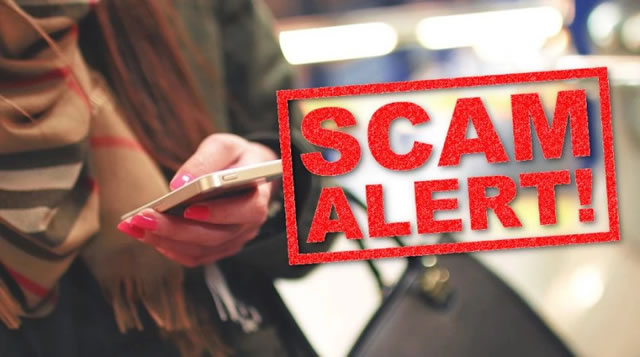Telephone Scammers Set To Cash In

image: CPR Call Blocker
People in London are being warned to be extra vigilant this Christmas as scam callers typically ramp up their activity during the festive period in the hope of cashing in.
Asresidents rush around in the run-up to Christmas sorting out their to-do lists, scammers are ready to strike and take advantage of distracted people who may say ‘yes’ to something without checking first if its genuine. And with most spending more time at home over the holiday period we are more susceptible to take these calls and could lose out.
In a bid to beat the scammers this Christmas, CPR Call Blocker, makers of a call blocking device, have compiled the top five active scams that local residents should watch out for this festive season:
1. HMRC Scam – you may get a call from someone claiming to be from HMRC saying there is an issue with your tax refund or an unpaid tax bill. They leave a message asking you to call back. HMRC would never contact you in this way and ask for personal information and bank details.
2. Bank Scam – someone may call claiming to be from your bank saying there’s a problem with your card or account. They may ask for your account, card and PIN details. They may also advise transferring your money to a ‘safe’ account to protect it. A bank would never ask you to do this.
3. Amazon Prime Scam – you may get a call from someone claiming to be from Amazon Prime saying you’ve been charged for an annual subscription. They then tell you that fraudsters have hacked your account to authorise payment, but it can be cancelled if you press 1 and then give access to your bank account in order to undo the hack. Amazon Prime would never ask you to do this.
4. Computer Repair Scam – someone calls claiming to be from a well-known IT firm such as Microsoft to tell you your computer has a virus. They will ask you to download ‘anti-virus software’ which may cost but also turns out to be spyware, used to get your personal details. IT companies don't contact customers this way.
5. Number Spoofing Scam – Scammers have the technology to mimic an official telephone number so it shows on your caller ID. This can trick you into thinking the call is legitimate. If in doubt, hang up and call the organisation directly using a number you have sourced. Wait at least 10 minutes before making the call as scammers can keep the phone line open for a short while, meaning you will still be connected to the scammer.
While the list is not exhaustive, CPR Call Blocker hopes to make people aware that scammers are becoming more inventive and if something sounds too good to be true or out of the ordinary, then it could well be a scam.
Chelsea Davies from CPR Call Blocker said: “Many of us can feel distracted, stressed and tired by the seemingly never-ending stream of tasks at this time of year. And when we’re feeling frazzled, it can be too easy to say “yes” to something without checking first whether it’s genuine. And then with many of us spending more time at home over Christmas, we’re there to pick up more calls. This makes for the perfect storm for scammers. So, while you’re thinking about gift ideas and what’s next on TV, scammers are thinking about getting their hands on your cash this festive season.
“We’re warning people in Cardiff to bear this in mind and we would always strongly recommend never giving your bank details or paying for something over the phone that you’re unsure of. Especially if the call you receive is the first time you have heard of any payment that needs to be made.”
If you want to stop receiving scam and nuisance calls this Christmas, follow CPR Call Blocker’s quick three-step guide to stopping unwanted calls:
• Sign up to the Telephone Preference Service – call 0845 070 0707 or visit www.tpsonline.org.uk.
• Don’t consent to being contacted – get your phone number taken off directories and look out for tick boxed on all marketing correspondence to see if ticking or unticking them will prevent your details being passed on to third parties.
• Consider getting a call blocker.
If you think you may be receiving scam calls, here are a few ways to protect yourself:
• Don't reveal personal details. Never give out personal or financial information such as your bank account details or PIN – even if the caller claims to be from your bank.
• Hang up. If you feel harassed or intimidated, end the call. You have the right not to feel pressurised.
• Ring the organisation. If you’re unsure whether the caller is genuine, you can always ring the company they claim to be from. Make sure you find the number yourself and don't use one provided by the caller.
• Don't be rushed. Scammers will try to rush you into providing personal details. They may say they have a time-limited offer or claim your bank account is at risk if you don't give them the information they need right away.
December 16, 2019
Related links
|